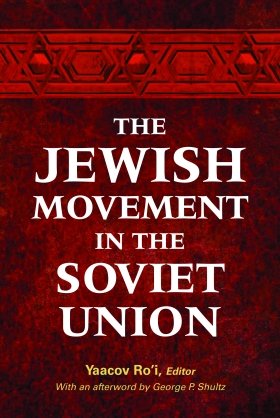The Jewish Movement in the Soviet Union

-
Yaacov Ro’i and his collaborators provide the first scholarly survey of one of the most successful Soviet dissident movements, one which ultimately affected and reflected the demise of a superpower’s stature.
The Jewish Movement saw hundreds of thousands of Soviet Jews leave their native country for Israel. This book grapples with the movement’s origins, its Soviet and international contexts, and its considerable achievements—prior to the mass Jewish emigration of Gorbachev’s last years, about one quarter of a million Jews left the Soviet Union. The contributors, a mix of senior and junior scholars, as well as movement participants, examine the influences of a wide range of contemporary events, including the victory of Israel in the 1967 war, the Soviet dissident and human rights movements, and the general malaise of Soviet society, its self-contradictory attitude toward nationalism, and its underlying anti-Semitism.
The book is based on a combination of secondary research, archival work, and interviews. The epilogue by former secretary of state George P. Shultz discusses support for the Jewish Movement under the Ronald Reagan administration, reactions and views by the United States as Gorbachev came to power, and U.S. satisfaction of his denouement.
Yaacov Ro’i is professor emeritus of history at Tel Aviv University. He is author of The Struggle for Soviet Jewish Emigration, 1948–1967 (1991); and editor of Jews and Jewish Life in Russia and the Soviet Union (1995). He is coeditor, with Avi Beker, of Jewish Culture and Identity in the Soviet Union (1991); with Noah Lewin-Epstein and Paul Ritterband, of Russian Jews on Three Continents: Migration and Resettlement (1997); with Zvi Gitelman, of Revolution, Repression and Revival: The Soviet Jewish Experience (2007); and with Boris Morozov, of The Soviet Union and the June 1967 Six Day War (2008).
Editor
Browse Insights & AnalysisExplore More
Browse Insights & Analysis



